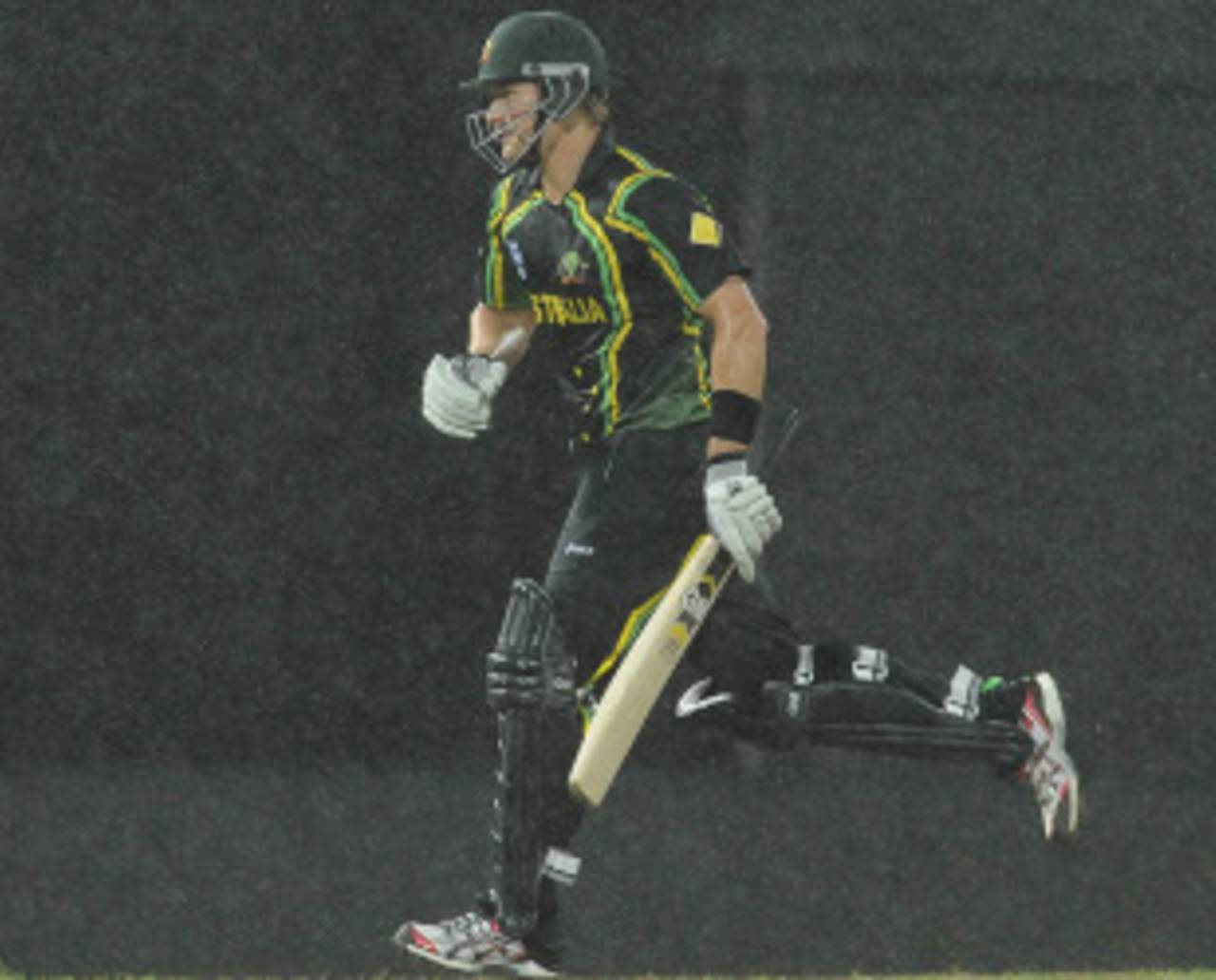As the first sign of October monsoon rains struck Colombo, West Indies were left to wonder how their batsmen could bring World Twenty20 alive in such exhilarating fashion and be left with nothing. At last the crowds came, the atmosphere crackled and the sixes rained. Then the storm broke, rivulets of water ran from the roofs of the stand and
Shane Watson walked from the field an Australian hero.
If it is recognition of sorts to be widely regarded as favourites for a World Twenty20, it brings precious little security. For West Indies to lose on Duckworth-Lewis by as large a margin as 17 runs gives a false impression that Australia, 100 for 1 from 9.1, chasing 192, were comfortably in command, but then D/L does not take into account the fact that Australia's top three is where their strength lies and that those to follow have considerably lower standing.
Darren Sammy, West Indies' captain, was right to suggest: "We really played a part in what would have been a cracker of a game. We still thought that we were right there in it. We have to put that behind us and still believe that we can win the tournament."
Ireland, though, will be seeking out long-range Colombo weather forecasts. They would qualify along with Australia, and oust West Indies in the process, if they won at Premadasa on Monday night and, as long as some sort of match was played, more rain would probably suit them just fine.
Watson had begun his night by dropping
Chris Gayle, a diving catch at third man when he was only 4, but he silenced Gayle later with a return catch and then finished unbeaten on 41 as he timed his assault on Marlon Samuels' offspin as if he was being fed information by the meteorological department. He took 20 from four balls, including a pulled six over midwicket which burst through the hands of Dwayne Smith, one of West Indies' safest fielders, to as good as settle the game as the first signs of drizzle appeared.
Had he played Samuels conservatively that over, the eighth, West Indies might have just about hung on; superiority in T20 shifts in a few balls. But Watson said: "I just knew at that stage that Marlon was going to be the guy for Mike Hussey and me to have to try to take down, knowing that we were going to need one really big over to stay in the match.
"Until I saw it was drizzling and the groundstaff running to the covers I had no idea there was rain coming so it didn't influence the way we batted at all. We knew we had to get the runs to balls down as quick as we could."
It is a fortunate man who drops Gayle and can smile at the memory. "I know how much of a difference it makes to our team if we get Chris Gayle out early," he said. "I spent a lot of the night thinking what I had done. I was feeling the pain until I did get him out but in the meantime he had done a fair bit of damage.
"At times we bowled very poorly. We knew where these guys like to score their runs, especially Chris Gayle and Marlon Samuels, and we didn't execute anywhere near to the standards we needed to. For us to go a long way in this tournament we need to be better at that."
Gayle had marked his 33rd birthday by philosophising about the secret of six hitting. "You have to let your mind and body flow together," he said. "You don't want to be stuck in a two-minded situation. You just try and be natural and things will actually flow for you in the end."
Hundreds of people try that in Sri Lanka every day, but most of them are on yoga and meditation holidays; Gayle does it to propel a cricket ball around 100 metres. It all looks contemptuous, but the way he describes it - a connection of the mind and body - he makes it sound closer to Buddhism.
